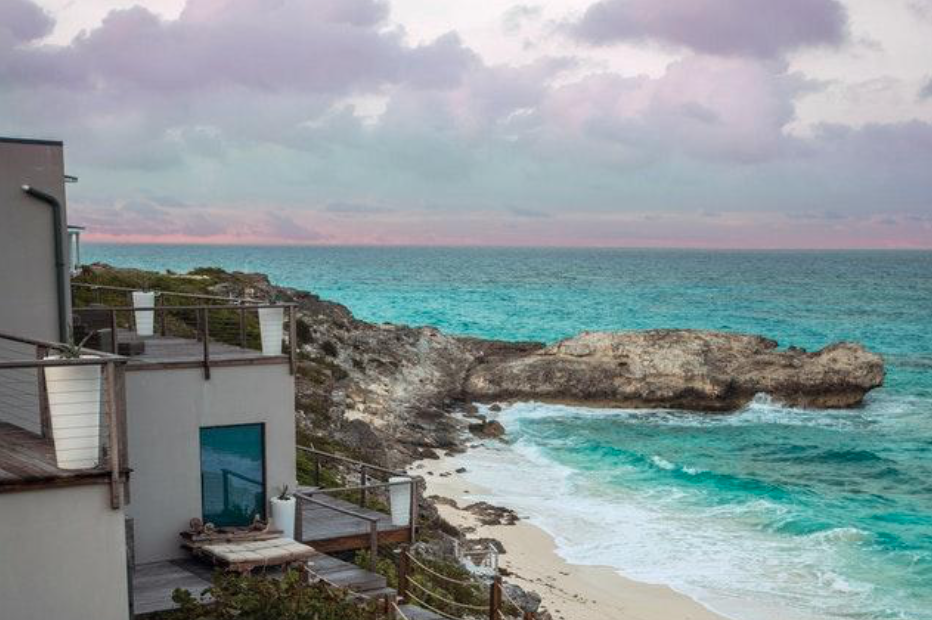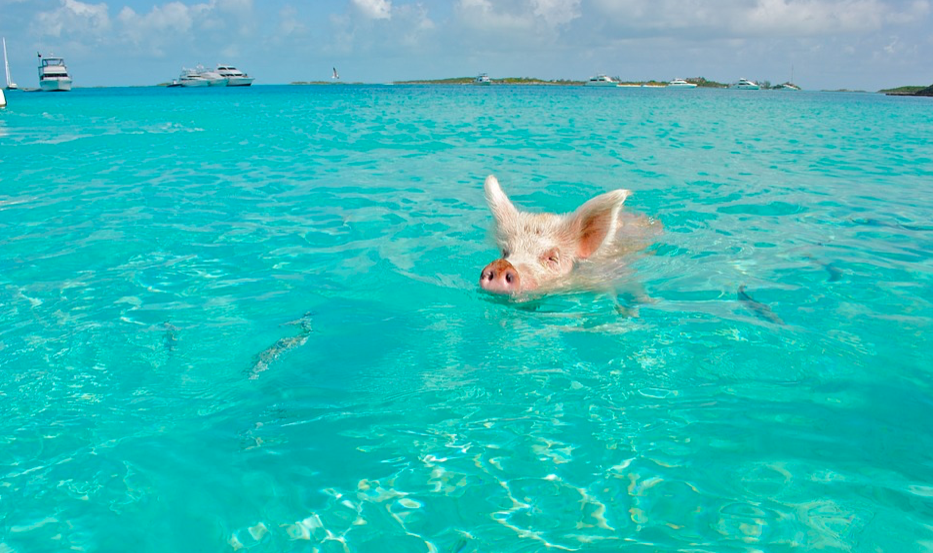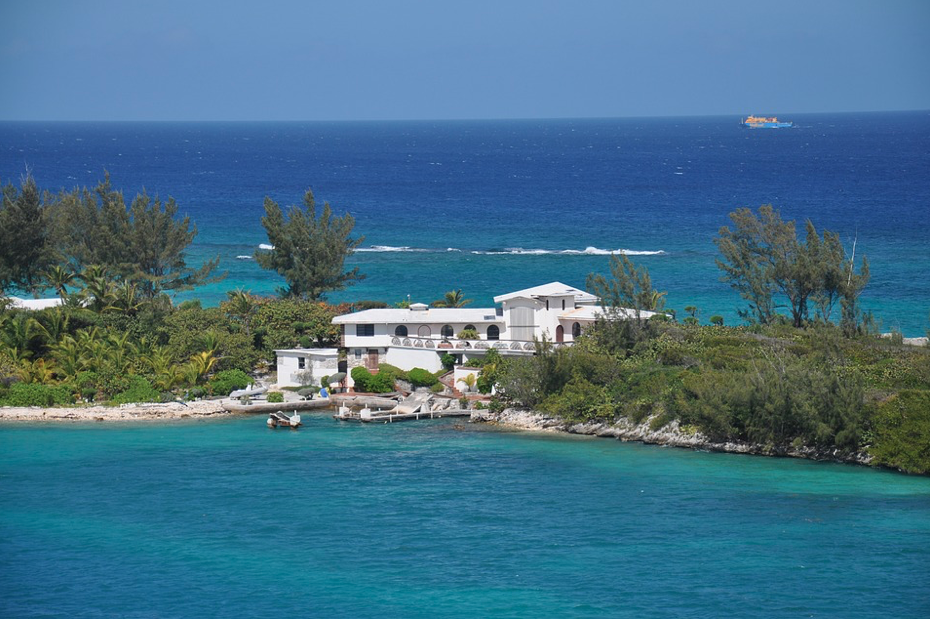 A Pristine Beach in the Bahamas.
A Pristine Beach in the Bahamas.
Are you ready to make your move, to any of the over 700 islands, islets or cays in the Bahamas? If so, you’re no doubt excited about your upcoming change of scenery. You’ll enjoy picturesque beaches, amazing snorkeling in the clear waters and sunny skies. The speed of life is also much slower and you’ll be able to savor the fresh seafood that’s prominently featured in Bahamian cuisine (1).
However, before you can relax, unwind and take in all of the sights and sounds the Bahamas has to offer – you must do the unpleasant chore of planning and executing your move. International relocation can be a difficult task, and it’s easy to find yourself in over your head. This is why working with an international moving company that has a proven track record is so important.
Yet, even with their professional guidance, you’ll still be responsible for collecting all of the necessary paperwork and paying all of the fees. For this reason, you’ll need to be informed beforehand, about everything that the process entails.
What Duties Will You Pay?

Staniel Cay, The Bahamas
Import duties to bring your shipment of household belongings into any foreign country, can range from free of charge to extremely burdensome. Unfortunately, this point isn’t clear, when it comes to your personal belongings and Bahamian customs.
Sources Disagree
One highly respected source claims that your used personal goods can be imported fully exempt from any duties. This is, provided that you only have reasonable amounts of each item in your shipment, and they are for your own personal use (not for commercial enterprise or to resell) (2).
However, a different source states just the opposite – asserting that you’ll be hit with an import duty of 35% of the CIF value. This is higher than just the value of your belongings, as it includes the cost of freight (or shipping) and insurance into the mix. A separate 7% stamp tax will be added to this as well, at least according to this particular source (3).
What Bahamian Customs Says
When sources disagree in this manner, it’s best to consult the customs website directly. Currently, the Bahamian customs website does have this 35% import duty listed. In addition, according to their site, your shipment will be charged value-added tax (VAT) of 7.5% – though whether this is assessed on all items isn’t clear (but it is likely). You’ll also be charged a separate environmental levy fee, however this is quite small. For example, on a $400 television this fee would be just $5. For a $10,000 vehicle, the environmental levy fee would still be a reasonable $200 (4).
Fee Calculation Examples
Where the process of calculating your charges gets more murky, is the status under which they are imported. For the examples given on the Bahamian customs pages, under both accompanied and unaccompanied baggage declaration forms (C17 or C18), you may be entitled to exempt $300 of a $400 television’s value for fee calculation. That means rather than paying the 35% import duty and 7.5% VAT on the full $400 value – you’d only be paying these charges on a value of $100 instead.
In contrast, examples on their website for courier/parcel list baggage declaration filing (C18A), do not show any such exemption. Therefore, duty and VAT are calculated using the full $400 value of the television.
Why Filing Status Matters
What’s the upshot of these different figures? When able to exempt most of the TV’s value under C17 or C18 filing – you’ll pay just $50.50 USD for duty, the environmental levy and VAT combined. When not able to exempt any of the TV’s value under C18A filing – you’ll pay the much higher $194.13 USD for all of these charges combined (5).
As you can see, filing status makes a profound difference on the total amount that you’ll pay. While a television was used in their examples, the differences in fee rates for different filing statuses, apply to many different items in your shipment.
Different Duty Rates For Specific Items
In addition to the varying total cost (dependent upon how you file and whether you can exempt most of the value of an item) – some specific items have different duty rates assigned to them. These changes were made after the recent implementation of VAT, and they can make the process of determining your import fees extremely complicated indeed.
For example, batteries are charged different rates, depending upon the exact type. Deep cycle batteries carry a 35% duty rate, whereas lead acid or automotive batteries are charged a 65% duty. The full list of items is extremely detailed, with barbeque sauce being charged just 5% duty but aluminum foil incurring a 30% duty. See here for a complete list of items, along with the rate they are charged.
Some Items Are Duty-Free
While duty exemption for your entire shipment isn’t offered, certain items are duty-free. The list is diverse, with items as different as computer printers and condensed milk both being exempt from import duty. See here for the full list of items.
Speak With Customs
With all of these intricacies in the duty and VAT calculation process, it’s vital that you learn beforehand the best filing choice for your shipment – and on what value these charges will be assessed. With such widely different final costs being possible, the best route is to speak to Bahamian customs for yourself. This will allow you to clear up any confusion, and determine how import duty, the environmental levy fee and VAT will be calculated on your shipment.
You will also need to work closely with a professional international moving company, who should help guide you through the process without any errors or missteps.
What Documents Will You Need?
 Exuma, The Bahamas
Exuma, The Bahamas
While our discussion of fee calculation was quite involved, fortunately documentation requirements to import your shipment are refreshingly simple. When bringing in your personal goods, you’ll need to provide customs with your passport and entry visa. A packing list and a separate inventory list are also required. Also needed is a letter giving your shipping company or other third-party agent, permission to work with customs to clear your shipment (called a Letter of Authorization) (6).
You may also need receipts, your Original Bill of Landing or Air Waybill and possibly your driver’s license. A Home Consumption Entry Form (C13 Form) and a Declaration of Value (C43 Form) may also be required (7). Contact customs to determine the exact paperwork you’ll need to bring your items into the country.
Duties On Your Vehicle
 One of the Famous Swimming Pigs in Staniel Cay, The Bahamas
One of the Famous Swimming Pigs in Staniel Cay, The Bahamas
In most countries around the world, your vehicle will be handled differently when attempting to clear customs. The Bahamas is no exception, and the import duty rate is based on the vehicle’s value. For a vehicle worth $10,000 USD or under, you’ll pay a 45% import duty. For a vehicle between $10,000 and $20,000 USD – this rate goes up to 50%. Finally, if your vehicle is worth greater than $20,000 USD, then a 65% import duty will be assessed (8).
Bear in mind, that an additional 7% stamp tax on your vehicle is reported by reputable sources (9). However, with the implementation of VAT in the Bahamas, stamp tax may have been rescinded or reduced. Again, you’ll fare far better if you speak with both Bahamian customs and your shipping company – to learn the exact fees that will apply to your specific situation.
Documents For Your Vehicle
 Nassau, The Bahamas
Nassau, The Bahamas
The paperwork required to import your vehicle into the Bahamas, includes a Certificate of Title and Registration from your country of origin (copies are acceptable). You’ll also need the purchase receipt or invoice, if you bought the vehicle not long ago (10).
According to experienced international vehicle shipping company A1 Auto Transport, Inc – you’ll also need your passport, customs declaration form, Original Bill of Lading and proof of valid insurance. Once your vehicle is cleared for entry by customs, you’re also required to get it inspected, registered and licensed by the Bahamian Road Traffic Department (11). Registration charges are based upon the vehicle’s weight, and you’ll pay anywhere from $160 to $760 USD (which is virtually the same in Bahamian dollars at the current exchange rate) (12).
In order to process your vehicle, the Bahamian Road Traffic Department will need to see your Road Traffic Vehicle Information form – along with your driver’s license from your origin country. Be aware that while your current license will authorize you to drive in the Bahamas for the first three months after moving, you’ll then need to obtain a Bahamian driver’s license to legally operate your motor vehicle (13).
SOURCES:
(1)
www.expatfocus.com
and
www.dupuchrealestate.com
(2)
www.iamovers.org
(3)
Found on Atlas Int’l “Importing Personal Property Into Bahamas” page.
(4)
www.bahamas.gov.bs
(5)
Ibid.
(6)
www.iamovers.org
(7)
www.bahamas.gov.bs
(8)
www.iamovers.org
and
Atlas Int’l “Importing Personal Property Into Bahamas” page.
and
www.a1autotransport.com
(9)
Ibid.
(10)
Atlas Int’l “Importing Personal Property Into Bahamas” page.
(11)
www.a1autotransport.com
(12)
-Registration charges based on vehicle weight and range from $160 – $760 USD:
www.a1autotransport.com
-Current exchange rate between Bahamian dollars (BSD) and U.S. dollars (USD) is
a 1:1 ratio:
www.xe.com/currencyconverter
www.a1autotransport.com
